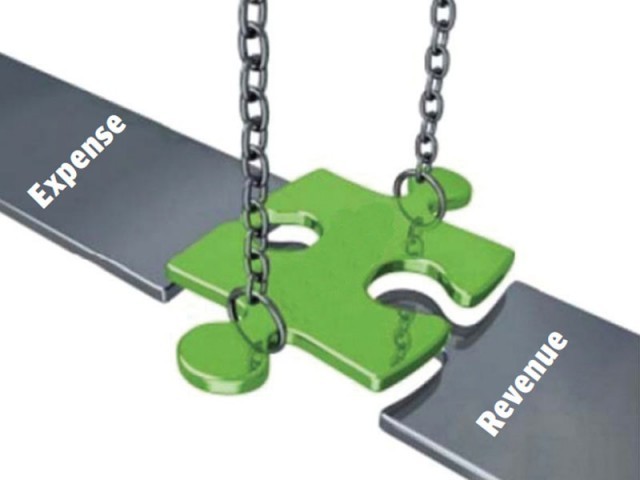Pakistan’s fiscal deficit clocked in at 2.4 per cent in the first half of year 2017 as against 1.7pc in the same period of last year, as per the numbers released by the Ministry of Finance on Thursday.
Analysts at Insight Securities attribute the increase in fiscal deficit to a stagnant tax base – 5.2pc of GDP vs 5.3pc in the last calendar year, declining profits of the State Bank of Pakistan on account of lower interest income and absence of Coalition Support Fund (CSF).
Banks were expected to finance the deficit by contributing 50.9pc of the requirement as opposed to 35.6pc in the last calendar year. However, excessive borrowing from State Bank of Pakistan – Rs983 billion as of February 2017 vs. retirement of Rs243 billion in the last fiscal year may create unwarranted inflationary pressure in the months to come.
The tax revenue collection stood at Rs1.74 trillion, against the target of Rs1.97 trillion, with direct and sales tax contributing 33.6pc and 33.1pc, respectively. Sales tax declined by 2.3pc year on year on account of lower collection on petroleum oil lubricant products and fertilisers.
A report by Insight Security said that they expect a fiscal deficit of 4.4pc for fiscal year 2017, higher than the government’s target of 3.8pc.
Assistant Professor of Economics at Institute of Business Administration Karachi and Research Fellow at CBER, Dr Adil Nakhoda said that due to the increment in expenditure, the target seems to be tight. However, he said that if the 5.5pc target of economic growth is achieved, this can also be achieved.
The recently announced Textile Package of Rs180 billion (spreading over 1.5 years) and continuation of subsidy on fertilisers (with an estimated impact: Rs4 billion) would further keep the fiscal deficit elevated, explained the report.
“The target of 3.9 trillion in tax revenue is a more difficult figure to achieve,” said Nakhoda. “Sales tax going down (due to decrease in POL) and direct tax going up will affect the fiscal deficit negatively.”
As the development spending goes up in the last year before elections and CSF does not come in, the fiscal deficit target is difficult to achieve.




